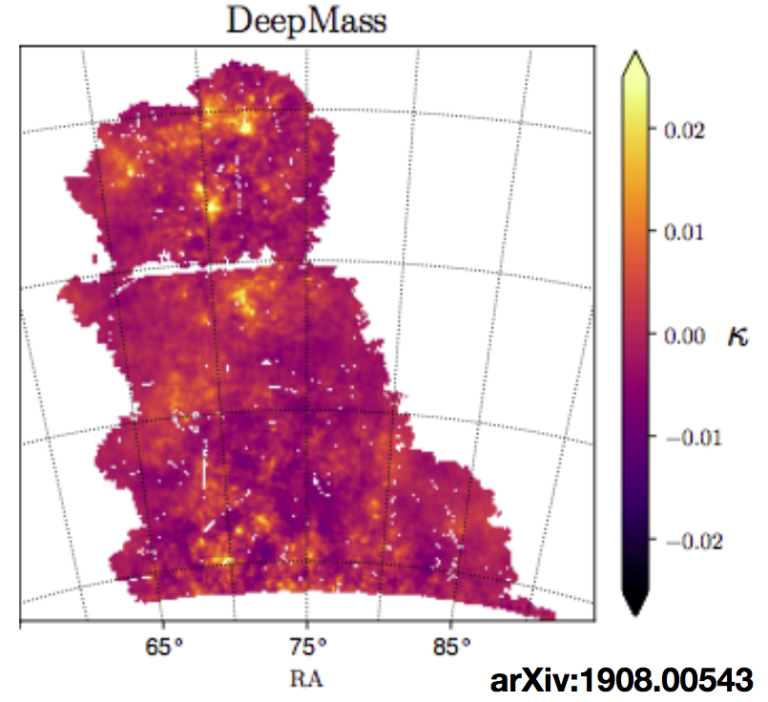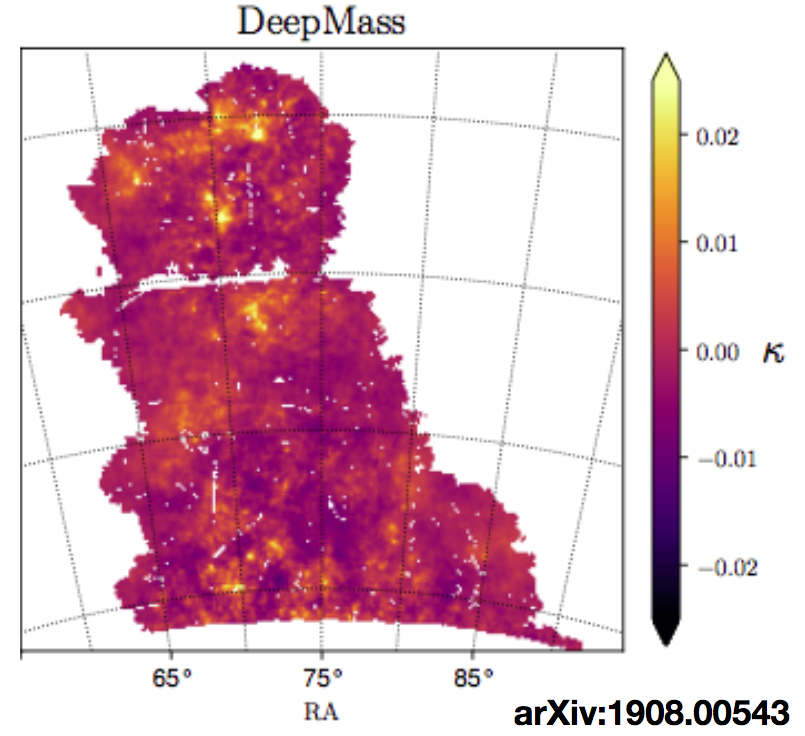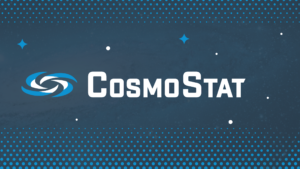DeepMass: The first Deep Learning reconstruction of dark matter maps from weak lensing observational data (DES SV weak lensing data)

DeepMass
This is the first reconstruction of dark matter maps from weak lensing observational data using deep learning. We train a convolution neural network (CNN) with a Unet based architecture on over 3.6 x 10^5 simulated data realisations with non-Gaussian shape noise and with cosmological parameters varying over a broad prior distribution. Our DeepMass method is substantially more accurate than existing mass-mapping methods. With a validation set of 8000 simulated DES SV data realisations, compared to Wiener filtering with a fixed power spectrum, the DeepMass method improved the mean-square-error (MSE) by 11 per cent. With N-body simulated MICE mock data, we show that Wiener filtering with the optimal known power spectrum still gives a worse MSE than our generalised method with no input cosmological parameters; we show that the improvement is driven by the non-linear structures in the convergence. With higher galaxy density in future weak lensing data unveiling more non-linear scales, it is likely that deep learning will be a leading approach for mass mapping with Euclid and LSST.
Reference 1: N. Jeffrey, F. Lanusse, O. Lahav, J.-L. Starck, "Learning dark matter map reconstructions from DES SV weak lensing data", Monthly Notices of the Royal Astronomical Society, in press, 2019.





